Help:Installing Bitcoin Core: Difference between revisions
No edit summary |
→Online wallet: Change title to eWallet and the word Alternative. |
||
| Line 40: | Line 40: | ||
* The wallet file holds the keys that allow spending and thus the computer should be [[Securing_your_wallet|protected]] from the risk of loss and theft. | * The wallet file holds the keys that allow spending and thus the computer should be [[Securing_your_wallet|protected]] from the risk of loss and theft. | ||
== Online | == Online eWallet alternative == | ||
An account can easily be created and [[Getting_started#Getting_my_first_coins|funded]] using an [[eWallet]] service. These services keep your wallet on their website instead of on your computer, sparing the hassle of installing Bitcoin. | An account can easily be created and [[Getting_started#Getting_my_first_coins|funded]] using an [[eWallet]] service. These services keep your wallet on their website instead of on your computer, sparing the hassle of installing Bitcoin. | ||
Revision as of 00:04, 11 January 2011
For Windows computers
Installation
Download and install Bitcoin.
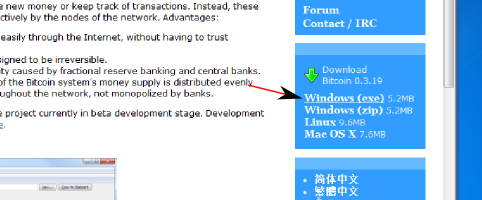
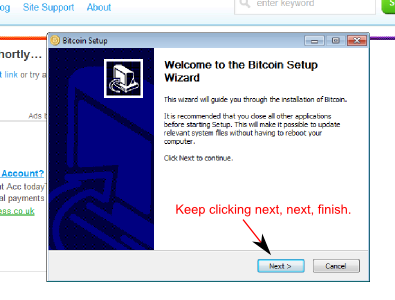
Initialisation
The first time you run Bitcoin, it needs to download all the blocks to setup. You already have your bitcoin address at this point, but you won't see any transactions before the initialisation is complete (it can take from half to a few hours).
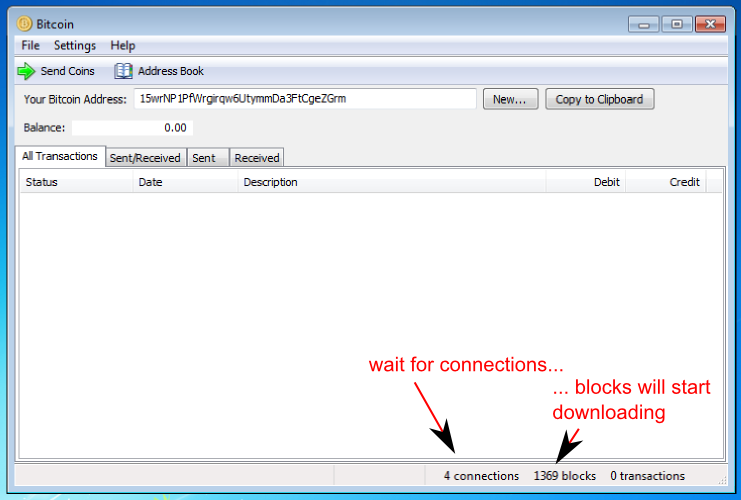
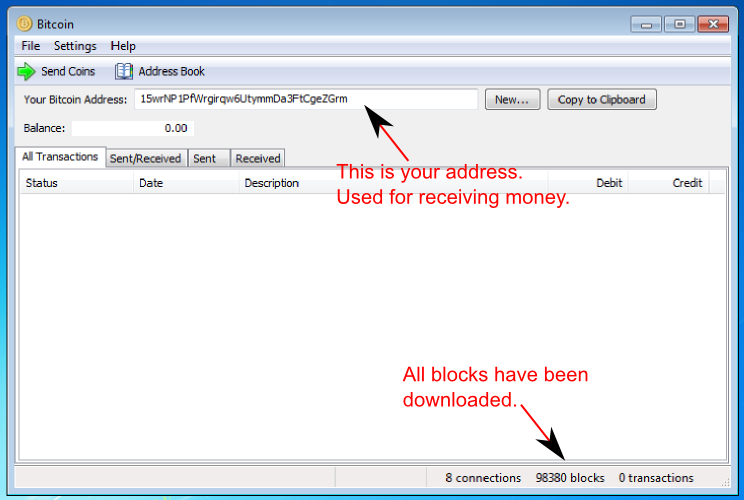
Your address (you can have as many as you want) is at the top. Below is your balance which will be zero. The list below shows your transactions.
Getting my first coins
The Bitcoin Faucet website currently hands out 0.05 BTC to new bitcoin users. Fill in the form with your bitcoin address.
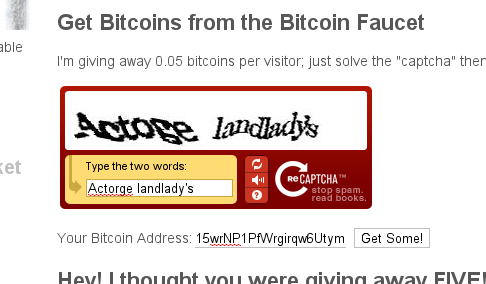
A new entry should appear in Bitcoin. The network hasn't yet confirmed it, but you know it's being processed. After about one hour it should get 6 confirmations. You are able to spend the coins when there is only one confirmation.
The confirmation counter (like the block counter) will increase by one roughly every 10 minutes. Six confirmations are considered as 100% sure a transfer has been processed.


Points to remember
- You don't need to be online for receiving BTC.
- You can create as many new addresses as you like. Using a different address each time helps keep you anonymous.
- You can be anonymous with adequate precautions.
- You cannot send BTC to an invalid address. Typos are not a worry as the payment will refuse to send.
- The wallet file holds the keys that allow spending and thus the computer should be protected from the risk of loss and theft.
Online eWallet alternative
An account can easily be created and funded using an eWallet service. These services keep your wallet on their website instead of on your computer, sparing the hassle of installing Bitcoin.
Technical
Block chain
The block chain is a neverending story of every transaction throughout the network from day 1 (genesis). The first time you run Bitcoin, it is downloaded and verified on your computer. Every new transaction is added to the end of this chain and verified by the network to be valid.
Addresses
Whenever you send a coin, you are in actual fact signing your coin with their address. This is transferring ownership to them. Once they own the coin then they are free to transfer it along to another person.
A wallet is a collection of addresses. You can create as many new addresses as you wish- it makes you more anonymous because then people cannot see how much BTC you received. Your wallet contains the secret keys used for spending that money, and must be backed-up regularly (after every spend). If you lose the wallet then you no longer possess the money.
Generating
New coins are minted through generating hashes. These generators are rewarded with a small fee for the computationally intensive task of incorporating your transactions into the block-chain. At regular intervals this fee halves as more coins are minted. This fee will keep halving until reaching zero, when 21 million coins are in circulation.